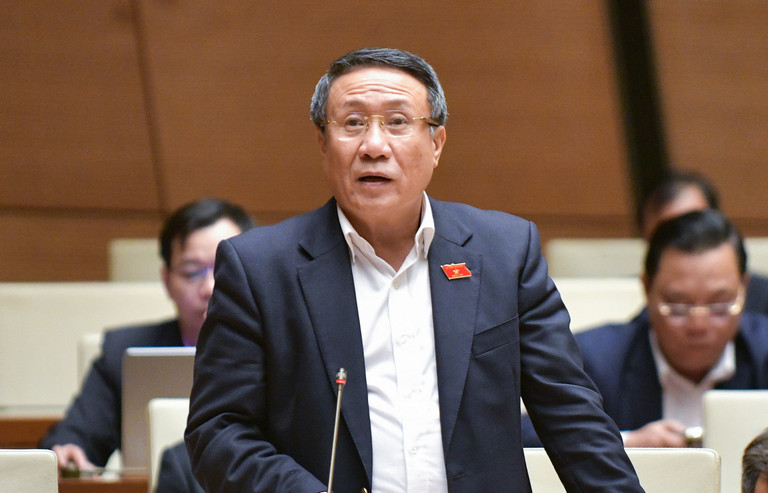
At a discussion about the draft law on credit institutions (amended) at the ongoing National Assembly’s fifth extraordinary session, National Assembly deputies showed special attention on handling scandals like the one that occurred with SCB.
Dong, who is also chair of Quang Tri province, said credit institutions are intermediary financial institutions which do business based on customers’ confidence. Only commercial banks may cause panic and chaos and create a ‘domino effect’ influencing the entire banking system.
Problems arise because of the unexpected changes of monetary business conditions, negative shocks, unstable macro environment, and loss of confidence which leads to rumors.
There can also be deliberate breaches of bank owners and managers, and violation of regulations on safety ratios which cause serious consequences.
The problems need to be responded with early interventions by specific measures, including ‘special control’, ‘restrictions’ (in operations), ‘support measures’, “handling with money massive withdrawal’ and ‘providing special loans’ which are mentioned in articles from 156 to 194 in the draft law.
The logic is in line with programs such as ‘three-layer defence’, ‘remote monitoring, on-site inspection’, and ‘deposit insurance’. If these measures can be implemented effectively, cases like SCB won’t occur, and if they occur, they won’t cause serious damage.
Dong, when considering international practice, pointed out that the central bank needs to be given more power to respond promptly and effectively to bank scandals.
Concerned about the limitation on ownership ratios in banks, deputy director of the Cao Bang Department of Culture, Sports and Tourism Doan Thi Le An, said bank owners could hardly control credit institutions’ lending if they hold 15-20 percent of capital.
In fact, violations by the banks recently showed that the actual ownership ratios banks’ owners held were much higher than permitted.
Therefore, while affirming that amending the law is a must, she believes that setting limitations on ownership ratios in bank won’t be enough to prevent manipulation like the SCB case.
In the case of SCB, though Truong My Lan, president of Van Thinh Phat, did not directly hold executive power, she still held 91.5 percent of SCB's shares through many individuals.
Believing that restrictions in bank ownership ratios bring unclear effects, a National Assembly deputy from Cao Bang said it would be better to tighten regulations on lending to shareholders and related persons; and design more regulations on cross-checking to clarify the ownership structure of banks and the accountability of parties.
Thu Hang